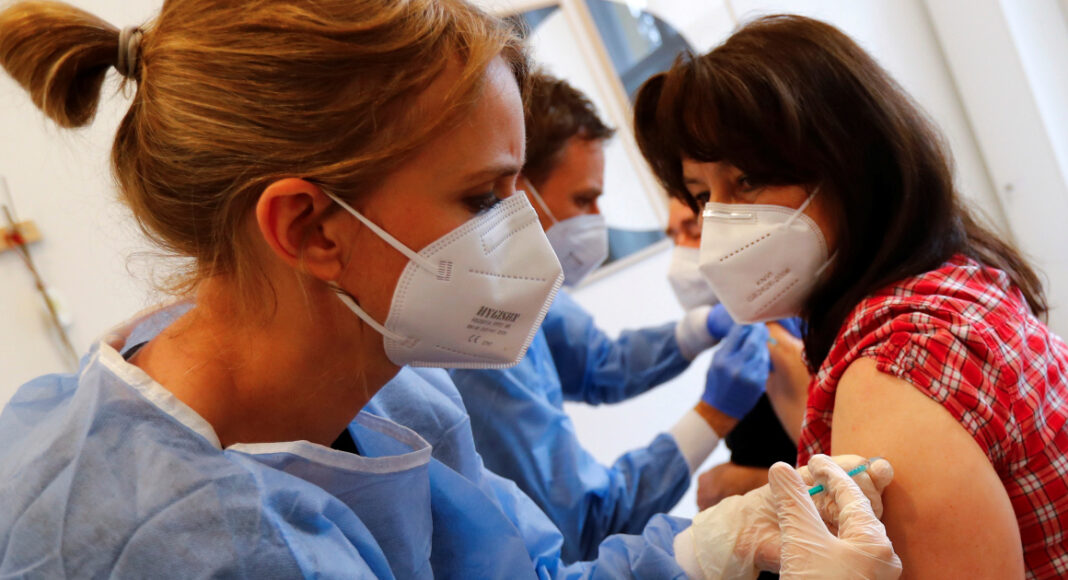Data shows more and more young people being hospitalised with respiratory infections and ICUs rapidly filling up.
Germany’s leading health institution has warned of a “very, very serious” situation as the country grapples with an accelerated third wave of coronavirus cases and a sluggish vaccination rollout.
On Sunday, the Robert Koch Institute (RKI) for disease control reported more than 17,800 new infections and 104 deaths.
Despite figures being usually slightly lower on weekends due to less testing, cases are rising compared with a week ago when the RKI registered nearly 12,200 cases and 68 deaths.
According to data from 70 hospitals around the country, more and more young people were being hospitalised with respiratory infections and ICUs were rapidly filling up.
Almost 90 percent of the new cases are caused by the more transmissible B.1.1.7 strain, known as the UK variant.
A further element of concern is the country’s sluggish vaccination campaign, analysts argue, due to the European Commission’s botched purchase plan.
In the latest episode of a series of setbacks between the European Union and AstraZeneca, the pharma company said on Friday that it will only deliver half of the doses it was scheduled to ship to the 27-country bloc.
In Germany, approximately 14 percent of the population has received at least one jab, according to the latest Our World in Data figures, trailing the United Kingdom, France and the EU average.
The vaccination rate dipped slightly further over Easter, as centres in several states shut for the holidays.
Further complicating the vaccine rollout is the official response to the embattled AstraZeneca jab.
Guidelines have changed several times – it was to be used only for below-65s, then withdrawn entirely over fears of blood clots, then reinstated, and now restricted mostly to the above-60s.
With infection numbers high and the vaccine rollout in Germany achieving only limited coverage so far, organisers of popular fairs and festivals have said such large-scale events will not be able to take place until herd immunity is achieved.
Meanwhile, Labour Minister Hubertus Heil announced plans to introduce free rapid coronavirus tests in all workplaces.
“Everyone has to do their part, also the world of work. To protect those who cannot work from home, we need comprehensive tests in businesses,” Heil told newspaper Bild am Sonntag.



